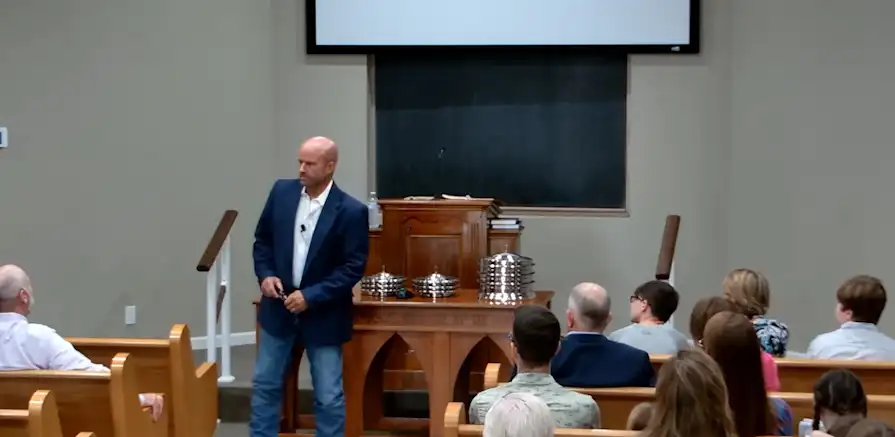Parenting is one of the greatest blessings and greatest challenges we face in life. Whether you’ve been raising children for decades or you’re just starting your journey, the responsibility can feel overwhelming. In this week’s sermon, we were reminded that while culture and opinions constantly shift, God’s Word remains a trustworthy guide—even in the difficult subject of disciplining children2025-08-31 10-50-48.
The Foundation: Is the Bible Enough?
The heart of the sermon asked a pressing question: Is the Bible sufficient? When it comes to raising children, the world offers countless books, articles, and theories. But Proverbs repeatedly reminds us to seek instruction, to trust wisdom over wealth, and to walk in the fear of the Lord. Discipline isn’t about reacting in frustration—it’s about faithfully applying God’s principles, even when they feel uncomfortable or countercultural.
Learning from Jesus’ Example
The sermon drew an important comparison from John 2, when Jesus drove out money changers from the temple. He didn’t act rashly; He took time to prepare a whip, showing intentionality and purpose. His actions weren’t about revenge—they were about zeal for God’s house. Likewise, discipline in the home must be measured, purposeful, and motivated by love, not anger2025-08-31 10-50-48.
The Proverbs on Discipline
Scripture speaks clearly:
- “The rod and rebuke give wisdom, but a child left to himself brings shame to his mother” (Proverbs 29:15).
- “Chasten your son while there is hope” (Proverbs 19:18).
- “Do not withhold correction from a child, for if you beat him with a rod, he will not die. You shall beat him with a rod and deliver his soul from hell” (Proverbs 23:13–14).
These verses aren’t simply theories—they’re principles. Discipline, when done rightly, isn’t abuse. It’s protection. It’s training. It’s love in action.
A Father’s Role and Responsibility
While both parents play a part in raising children, Scripture emphasizes the responsibility of fathers. Hebrews 12 compares earthly discipline to God’s discipline, reminding us that correction is a mark of sonship. Fathers are called not only to correct but also to lead in love, teaching, and example (Ephesians 6:4).
Discipline is not the only tool of fatherhood—it must be balanced with nurture, guidance, and spiritual leadership. A father who disciplines without love can provoke his children to anger, but a father who loves without correction risks leaving his children unprepared for life.
Real-Life Lessons and Humility
The sermon was honest: every parent makes mistakes. Sometimes discipline goes too far, sometimes it’s too soft, and sometimes it’s simply misguided. The key is humility—recognizing where we fall short, asking forgiveness when needed, and committing to do better. Parenting is a lifelong process of learning, guided by Scripture and seasoned by grace.
More Than Discipline: Living the Example
Ultimately, discipline cannot be separated from example. Children watch how we live—how we treat our spouses, how we handle stress, how we serve others. Fathers and mothers alike are called to lead their homes not just with correction, but with compassion, integrity, and faith. The “program” for raising godly children isn’t a church activity or a youth ministry—it’s the daily life and witness of parents in their homes2025-08-31 10-50-48.
Final Thoughts
Discipline is never easy. It can be uncomfortable, misunderstood, and even misused. But when it is grounded in love and guided by God’s Word, it becomes a tool for shaping children into men and women of wisdom, respect, and faith.
Parenting may be full of mistakes, but it is also full of grace. God, the perfect Father, lovingly disciplines His children so that we may share in His holiness. If we trust Him, His Word will be enough to guide us through the joys and trials of raising the next generation.

